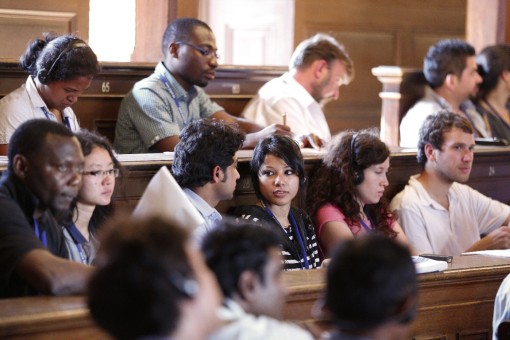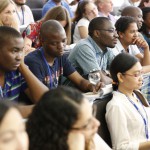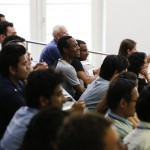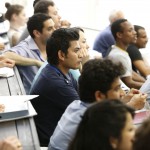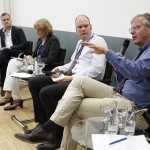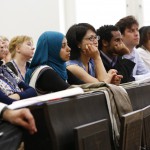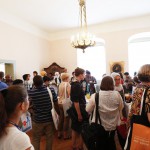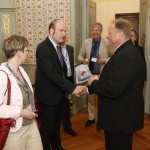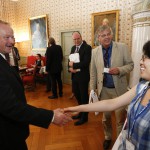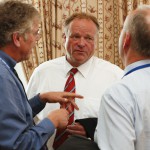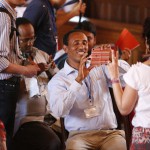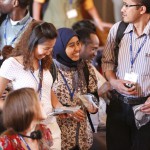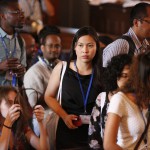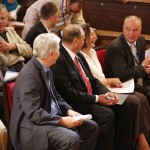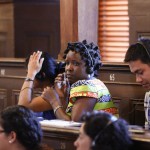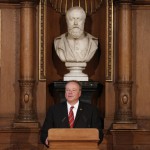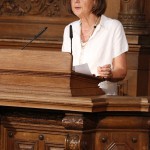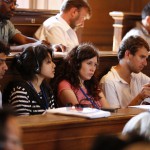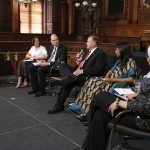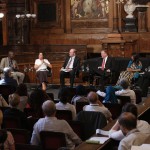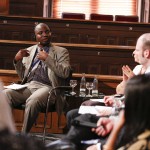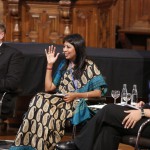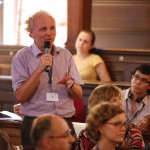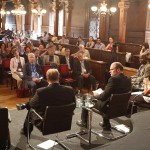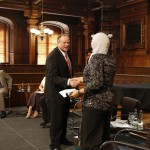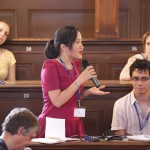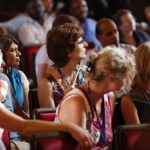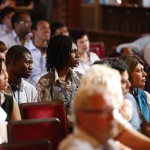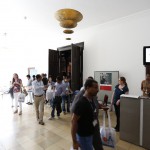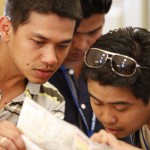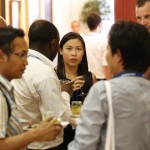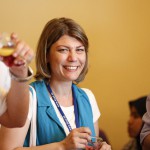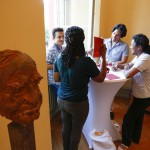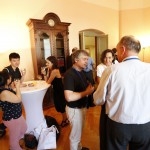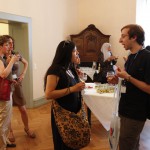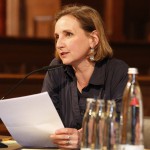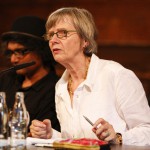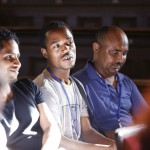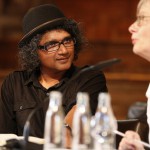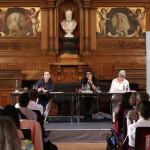To shape and drive transformation processes in their home countries is what all DAAD scholarship holders from developing countries aspire to do. And it’s what DAAD alumni are already achieving. They presented their plans and spoke about their experiences during the “Change Agents – The Faces of Change” conference held in Heidelberg. The event was hosted by DAAD President Margret Wintermantel and Federal Minister for Economic Cooperation and Development Dirk Niebel.
It did not take long before the old lecture hall at Heidelberg University had reached sauna-like conditions, quickly turning the standard “a very warm welcome” opener into a running gag. Despite the heat on event-day, a total of 200 participants many of them scholarship holders, alumni and university instructors gathered for lively, intensive and even controversial debate and discussion.
Majority of alumni return home
Heidelberg drew attention to a long-standing and successful collaboration. “Together with the DAAD, the Federal Ministry for Economic Cooperation and Development has been providing funding to scholarship holders from developing countries for over 25 years now,” said Federal Minister Dirk Niebel. Once they have finished their programmes in Germany, the alumni return to their own countries and apply the knowledge they have gained abroad to promote and shape change at home. The conference focused on ways in which alumni are doing this around the world. As shown in the latest DAAD study “Knowledge Action – Change”, which was officially presented in Heidelberg, more than 70 percent of scholarship holders initiate positive change in their countries after returning home.
In a panel discussion, three alumni spoke about what they had taken back with them from Germany. Most of the time what helped pave the way into the key positions they occupy today was the theoretical background and insight gained in Germany. “The personal experiences are also important,” stressed Doaa Mohamed Soliman from Egypt. “My first experience was one of culture shock everything was suddenly so different. At some point, however, I started noticing the commonalities.” The experience of being confronted with foreign country and a foreign culture led Doaa Mohamed Soliman to her current position at the Anna Lindh Foundation in Alexandria, which aims to strengthen dialogue between cultures.
The desire to finally take action
While identifying with the idea behind the term “change agent” label, the panel participants showed a certain wariness toward taking on the “agent” label. What they want more than anything else is to bring about real changes in their home countries. As Suaad Abdo put it, who is currently studying Public Policy and Good Governance in Erfurt, “I want to make sure that women in my home country of Yemen have access to good education and live self-determined lives.” Li Ma from China, who studies International Management in Reutlingen, is devoted to environmental issues. “We’re running out of time that is why I want to take on responsibility.”
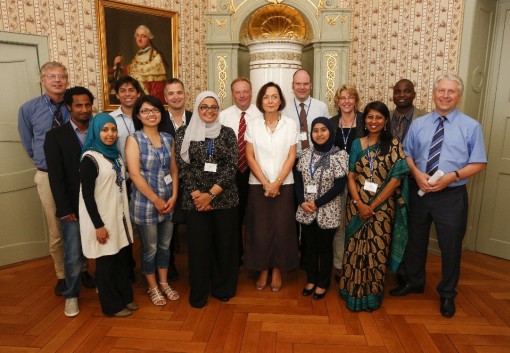
The conference speakers: DAAD President Margret Wintermantel (front row, middle), behind her Federal Minister Dirk Niebel (left), together with alumni, scholarship holders and university representatives
Photo: Sven Bratulic
Using synergies
Alumni and scholarship holders are in no way required to become “change agents”, or as DAAD President Margret Wintermantel calls them, “charismatic personalities who drive changes in their home countries”. This aspect was also discussed during the conference. The fact remains, however, that many want to do exactly that, but lack the support they need to reintegrate and get started. As the conference showed, much could be done to improve the post-scholarship experience. An important item on the agenda is therefore the continued expansion of alumni networks, which allow students to build connections during their time in Germany and use them once they arrive home.
For a detailed report of the conference (PDF), click here.
Video of the event:
Image gallery conference in Heidelberg:
Photos: Sven Bratulic


